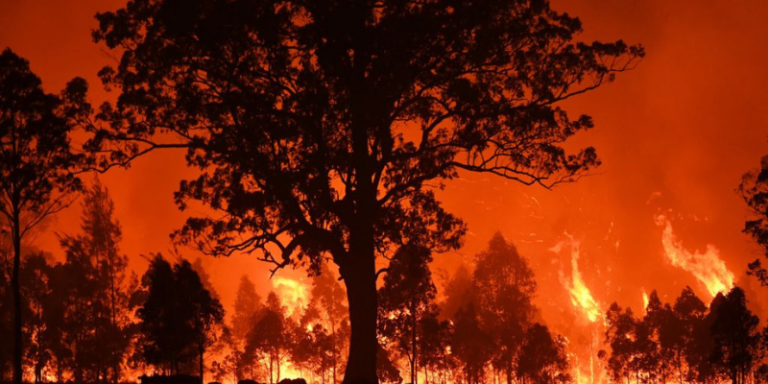Australian Wildfires: It Isn’t About Climate Change
Australia isn’t abnormally dry or hot, so let’s not blame climate change.
By: Onar Åm | January 13, 2020 | 364 Words

(Photo by Nick Moir/The Sydney Morning Herald via Getty Images)
As fires have ravaged large parts of the Australian wilderness, many have blamed manmade climate change. But while people are largely to blame for many of these fires, it is in far more direct ways than climate change. Over the years, Australian environmental authorities have made illegal the practice of periodic controlled burning of underbrush to prevent larger fires. Together with arson, the results are devastating.
Climate Change?
The United Nations’ International Panel on Climate Change (IPCC) has consistently reported that there is no scientific evidence of increased extreme weather. Globally, drought has gone slightly down in recent decades, and damage due to fire has declined.
Furthermore, Australia is not currently unusually hot or dry. Most of the fires have occurred near the east coast, where temperatures are below average.
Policy Backfire
Environmentalists have strongly influenced the policies of Australia. One of their accomplishments has been to prevent periodic controlled burning of dry plant matter on the forest floor, under the auspice that doing so would release CO2 into the atmosphere.
In 2015, former Commonwealth Scientific and Industrial Research Organisation (CSIRO) bushfire scientist David Packham said that forest fuel levels had worsened over the last 30 years. He warned that unless at least 10% of dry ground matter on public land is burned annually, “a massive bushfire disaster will occur.”
Despite the good intentions behind the policy, forbidding controlled burns actually makes wildfires more likely and far less controllable. And when the material burns anyway, the same amount of carbon that would have been released in smaller increments over time is released all at once.
Arson
Government statistics show that humans start more than 80% of fires, and arson is suspected in up to half of the cases. In the state of New South Wales, the current disaster hotspot, 183 people have been arrested for igniting fires.
When a person starts a fire that gets out of control – whether it be intentional arson or an accident – neither climate change nor public policy is to blame. These factors may make the fire worse – but that doesn’t change the fact that some person is to blame. Simply being attentive and careful with fire can prevent the majority of blazes.
















